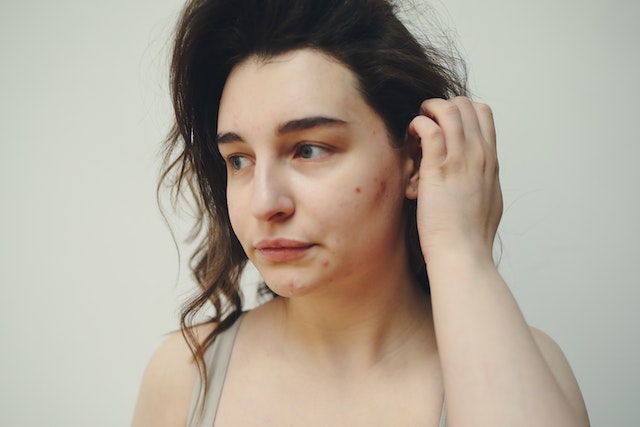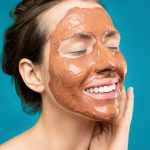
What Exactly is Acne?
Everyone experiences acne at some point in their lives. It’s one of the most common skin conditions.
Acne is the direct result of a combination of things. It starts with secretions of oil produced by the skin’s sebaceous glands. These glands are meant to produce oil to hydrate the skin. However, when too much oil is produced, it can clog the pores in the skin. If pores get clogged and are large, they typically result in blackheads on the skin. These are tiny little black dots on the skin.
If the openings of the pore remain small, the clogged pore will end up taking on the form of a whitehead pimple. These look like small yet inflamed bumps on the skin. Each of these types can end up resulting in noticeable pimples or nodules on the skin. If the nodule forms deeper in the skin, it typically results in somewhat painful lumps known as cystic acne.
While acne is typically more common when one is a teenager when their hormones are fluctuating so much, many adults continue to get acne well into their lives. As many as 1 in 5 of all acne cases occur in adults. It usually starts during puberty when the sebaceous glands produce excessive amounts of oil. This typically occurs between the ages of 10 and 13 years old.
If you suffer from teenage and hormonal-induced acne, it’s usually going to last anywhere from 5 to 10 years in total. It typically fades in your 20’s. While acne is a condition that affects both boys and girls, it’s usually more common in boys. However, as you get older, women become more likely to suffer from acne due to significant hormonal changes in their 30s and 40s. Dr Schrammek cosmetic range can get you healthy skin in a natural way.
While acne is more common to experience on your face, you can also get acne on your back, shoulders, chest, and more.
A lot of people assume acne is the result of not having good hygiene. Others may contribute it to diet. However, these are not necessarily true. Contrary to these beliefs, it’s not caused by diet or hygiene alone. The fact is, hormones and genetics are typically responsible for acne. Just because you scrub your face with acne cleanser 10x per day doesn’t mean you aren’t going to experience acne. Likewise, avoiding chocolate isn’t going to keep you from getting pimples.
What is the Cause of Acne?
While there is no singular cause and the overall causes of acne aren’t entirely understood, it’s known that stress can aggravate it. However, it doesn’t cause it.
Hormones
This is one of the big causes of acne. A lot of teens experience acne flare-ups because they have hormones in a state of flux. Hormones are generally produced in excess during puberty. This includes both boys and girls. High levels of testosterone and androgens are produced during these years.
Testosterone, in particular, is one of the culprits of getting acne. After all, the hormone signals to the skin that it needs more sebum produced. When you have more sebum production, you have more risk of clogged pores.
Bacteria
Bacteria is another common cause of acne formation. The problem is that when excess sebum is produced, bacteria stick easier. Excess sebum then traps the bacteria in the open pores. This happens very easily on the face.
The bacteria then grow in these clogged pores and result in acne flare-ups and inflammation. When the clogging causes the follicle (hair) wall to break, it can leak sebum into nearby tissue, resulting in an even larger pustule/acne forming.
Oral contraceptives can be beneficial or they can exacerbate acne in women. It depends on genetics. Some contraceptives can trigger acne flare-ups. Likewise, steroids can be a major cause of acne in athletes and bodybuilders because they trigger more testosterone production.
There are a lot of different subtypes of acne. Acne neonatorum and acne infantum are two that typically affect brand-new infants and newborns. This is when a rash appears on the face of these individuals. It usually goes away in a couple of weeks and it’s not harmful. However, some can be much more severe and result in permanent scarring.
A lot of people that do not experience acne when they are a teenager could be more at-risk for developing adult acne when they get older. While there is typically an increase in androgen during the adolescent years, some medical professionals believe that the excessive flare-ups have more to do with how one’s skin responds to an increase in oil production or to the bacteria that directly cause acne.
The bacteria that induce acne is something that naturally occurs in hair follicles. The problem is when too many of them accumulate in clogged pores. When they do, they could release enzymes that break down the sebum oil and result in an inflammatory response. Some people’s skin is more sensitive to this process which can make them more susceptible to acne formation than others.






